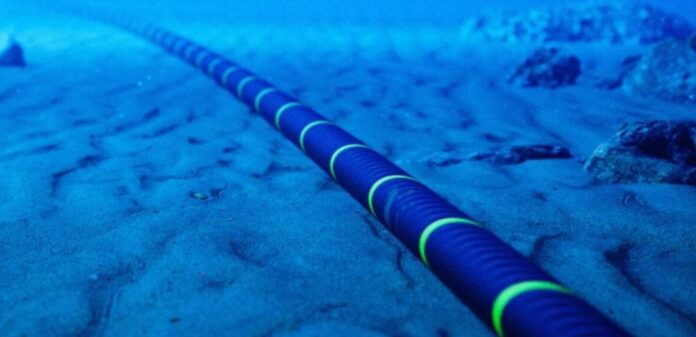In a significant disruption to international communications, the C-Lion1 submarine cable, connecting Finland directly to Central Europe via Germany, has been broken, causing its communication connections to be completely severed. This cable, which runs under the Baltic Sea from Helsinki to Rostock, is crucial for data transmission between these regions.
The outage was first reported early Monday, November 18, 2024, with Cinia, the Finnish state-majority-owned company responsible for the cable, confirming the break. The cable, known for its high capacity of 144 terabits per second and its eight fiber pairs, has been pivotal since its commissioning in 2016 as it provided the only direct link for Finland to Central Europe, bypassing the usual routes through Sweden and Denmark.
Also read: Spirit Airlines Files for Bankruptcy Amid Mounting Financial Struggles
The exact cause of the cable’s malfunction remains under investigation. Samuli Bergström from Traficom, Finland’s National Cyber Security Centre, noted, “Disturbances occur from time to time and there can be various reasons. For example, they are susceptible to weather and damage caused by shipping.” However, given the recent geopolitical tensions and previous incidents involving undersea infrastructure, there is speculation on social media platforms like X about the possibility of intentional sabotage.
The cable’s design, with it being buried to a depth of one meter in some sections, adds to the complexity of understanding how such damage could occur. The route of C-Lion1 closely follows that of the Nord Stream gas pipeline, raising concerns about the vulnerability of critical infrastructure in these waters.
Cinia has scheduled a press conference to provide updates on the situation, emphasizing the urgency of restoring this vital link. The disruption affects not only Finland and Germany but also has implications for broader European communications, especially for data centers and telecom providers relying on this route for low latency connections.
This event underscores the fragility of global communication networks which, despite their technological sophistication, can be rendered inoperative by physical damage, whether accidental or deliberate. The incident is a reminder of the strategic importance of submarine cables, which carry over 99% of international data traffic, and the need for robust security measures to protect these underwater highways of information.



